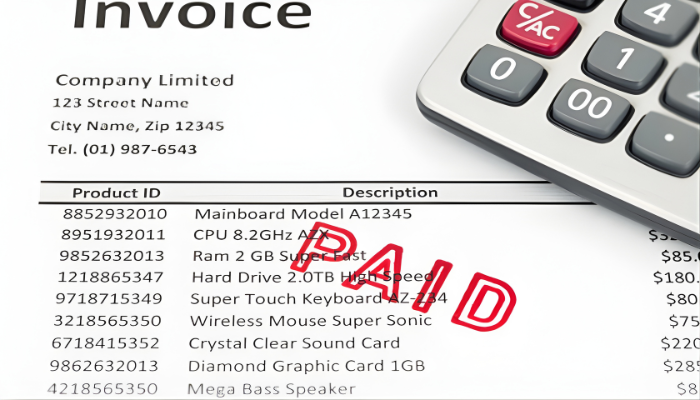
The trucking industry remains the backbone of the American economy, moving goods across the nation and ensuring businesses are supplied and customers are satisfied. If you’re ready to launch a trucking business, congratulations! You’re stepping into an essential and rewarding field. Success also requires strategic planning, industry knowledge, and a commitment to excellence. Whether you're an aspiring entrepreneur or looking to expand your ventures, follow these steps to lay a strong foundation for your business.
Learn the Lay of the Land
The trucking industry operates within a tightly regulated framework that is important to understand but is manageable with the right resources. The Federal Motor Carrier Safety Administration (FMCSA) establishes rules for safety, compliance standards, and operations that all trucking companies must follow. Mastering these is essential, especially if you plan to handle specialized freight or cross state lines.
Your first task? Decide what you’ll transport and where you’ll operate. Some goods, such as perishable or high-value items, require specific equipment and permits. Currently, advanced tools like electronic logging devices (ELDs) and fleet management software are more than just compliance tools—they optimize operations, improve safety, and streamline record-keeping. Start by deciding what type of goods your business will transport and where your routes will take you. Specialized freight, such as refrigerated or hazardous materials, comes with unique handling and licensing requirements.
The FMCSA website remains your go-to for updated detailed guidance on safety, licensing, insurance, and operational compliance. Familiarizing yourself with these requirements early will set you up for success and investing time in learning these requirements now will save you headaches down the road.
To Drive or Not to Drive?
One of the first decisions you’ll face is whether to become an owner-operator or manage subcontracted drivers.
- Owner-Operators: Owning and driving your trucks gives you complete control over operations. You’ll be on the road, building your reputation and forming direct relationships with clients. However, this route requires substantial upfront capital and ongoing maintenance of your vehicles.
- Subcontracting Drivers: Prefer to stay off the road and focus on the business side? Subcontracting drivers lets you scale your operations without being tied to the wheel. While this model can make growth easier, finding reliable contractors is an ongoing challenge.
Both paths require a detailed business plan that outlines your startup costs, revenue projections, operational expenses, and marketing strategies. Be realistic—delayed client payments are common in this industry. Solutions like invoice factoring or small business loans can bridge cash flow gaps, ensuring your business stays on track during lean periods. A solid plan will guide you through early challenges and set the stage for long-term success.
Cut Through the Red Tape
Starting a trucking business involves navigating legal and regulatory hurdles, but don’t let them intimidate you—they’re manageable with the right approach.
If you’ll be driving, securing a commercial driver’s license (CDL) is your first step. For those forming a business entity, such as a limited liability company (LLC), you’ll need to file the necessary paperwork with your state, register for taxes, and obtain permits specific to your operations.
Next, invest in the essentials: trucks that fit your business model, comprehensive insurance for your fleet, and tools to simplify compliance. Fleet management software can help you stay on top of vehicle maintenance, track operating expenses, and ensure you’re meeting federal and state requirements.
2025 has brought advances in compliance technology, making tasks like tax filings and record-keeping easier than ever. Leveraging these tools early on will keep your business running smoothly and efficiently.
Secure Clients and Build Relationships
Winning clients is one of the most challenging and rewarding aspects of starting a trucking business. Platforms like DAT and Truckstop are excellent for finding freight, but long-term success depends on building strong relationships with brokers, shippers, and other business partners.
In today’s market, shippers and brokers value reliability and transparency. Offering features like real-time shipment tracking and responsive communication can set you apart from the competition. Build trust with your clients by delivering on promises and exceeding expectations whenever possible.
Marketing is important. A professional website, active social media presence, and partnerships with local businesses can increase your visibility. As your reputation grows, word-of-mouth referrals will become a powerful asset.
Above all, prioritize customer satisfaction. Delivering on your promises and maintaining clear communication will foster trust and ensure repeat business.
Manage Financial Challenges
Trucking is a high-cost industry, with expenses for fuel, insurance, maintenance, and payroll adding up quickly. Without a strong financial plan, even the best-run companies can face cash flow challenges.
Transport funding is an important tool for trucking businesses in 2025, providing a way to accelerate cash flow by factoring unpaid freight bills. Unlike traditional loans, transport funding allows you to receive up to 97% of the value of your invoices upfront, without risking personal or business assets as collateral.
Here’s how it works: After delivering a load, you send the associated freight bill and bill of lading to the funding provider. You’ll receive an advance to cover immediate needs, while the funding company takes over collections from your customers. Once the invoice is paid in full, you’ll get the remaining balance, minus a small factoring fee.
Options for Transport Funding:
- Non-Recourse Factoring: Ideal for smaller companies (1-5 trucks), this option shifts the credit risk to the funding provider, protecting your business in case of non-payment.
- Recourse Factoring: Larger businesses can reduce fees by taking on the credit risk, making this a cost-effective choice for companies with established cash flow.
Trucking businesses use transport funding for immidiate needs like hiring drivers, repairing or replacing equipment, covering taxes, and growing their operations. Factor Funding, with over 20 years of experience, specializes in supporting the trucking industry with tailored cash flow solutions.
Beyond transport funding, investing in fuel-efficient technology, planning optimized routes, and regularly reviewing expenses are essential for maintaining profitability. Combining these strategies with proactive financial management will position your business for long-term success.
Enjoy the Ride
Starting a trucking business is no small feat, but it’s a rewarding way to make a lasting impact on the economy. Whether you’re behind the wheel or managing operations from an office, you’re part of an industry that keeps America moving.
With careful planning, a commitment to excellence, and a focus on building strong relationships, your trucking business can thrive in 2025 and beyond. Embrace the journey—it’s as much about the roads you travel as the destinations you reach.
At Factor Funding, we understand the unique challenges faced by trucking entrepreneurs. From cash flow solutions to expert guidance, we’re here to help you navigate the road ahead. Ready to get started? Let’s make your trucking business a success story.
*Updated from January 17, 2017 to reflect the latest industry trends, technology advancements, regulatory updates, and practical insights for starting a successful trucking business in 2025.






















